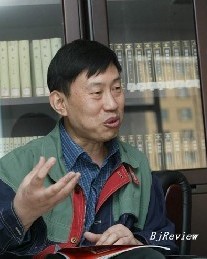
Despite its remarkable economic achievements, China is seeing high risks in the social system and needs preemptive measures to tackle the problems, said Li Peilin, a sociologist with the Chinese Academy of Social Sciences.
Li has steered a nationwide survey on China's social development and his team released their findings in a report published on December 25, 2006.
A wage gap widening daily, along with expensive health care and unemployment, are the prime concerns of the Chinese people as they head for a new year, according to the report.
Compared with official statistics that always reflect the average situation, Li said the studies of his team focus more on social demand and can be seen as a proposal for government policy adjustments.
"The richest 20 percent of the population earn 18 times that of the poorest," Li said. "Meanwhile, we find that over 50 percent of people believe they belong to the low-income group or are below the middle stratum of society, reflecting a low sense of social identity."
In addition, the overwhelming majority of the 7,061 valid respondents to the survey agreed that China's income gap is widening.
Despite this, Li doesn't think the widening income gap itself is a serious problem, but warns of the risk of institutional defects behind the phenomenon. He suggests that more attention should be paid to the establishment of a mechanism that can ensure all are equal in the face of opportunities and those in positions of power, rather than a late adjustment of wealth distribution. In this sense, Li is different from many Chinese economists who have called for priority to be given to the wealth redistribution system.
"It's imperative that the government set up a fair system to eradicate the suspicion that exists among the public, who, otherwise, will still feel unsatisfied even the social wealth are equally shared," Li stressed.
"Support for agriculture, rural areas and farmers will still be the number one priority next year. Public funds will irrigate rural education, medical care, employment and social security."
Jin Renqing, China's Minister of Finance, pledging that a considerable part of next year's increased central budget funds will be channeled into public welfare programs
"The Gini Coefficient, a measure of income inequality, has reached 0.47 for China, up from 0.29 two decades ago. Usually, a country with a ratio exceeding 0.4 is warned to pay more attention to the inequality issue."
A warning from the National Development and Reform Commission, China's top economic planning body
| 